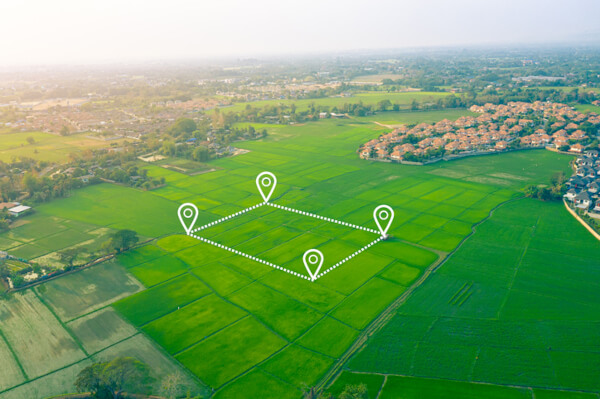
Especially for those oriented towards the outdoors, etched into the American Dream is the idea of buying your own plot of undeveloped land and building your dream house on it. Surrounded by nature and far from the ills of society, the dream evokes plenty of the ideals espoused on Thoreau's Walden that still ring true for many today.
On the other hand, there's the whole investment angle. While there are pros and cons to buying undeveloped land for sale (and we'll get into them in a bit), one major upside is the investment potential.
From undeveloped land for sale in Colorado to Texas, from undeveloped land for sale in Washington State to Michigan, one thing the United States has plenty of is land. But buying undeveloped land is something far fewer people have experience with compared to simply buying a pre-existing home.
If you're in the market for undeveloped land, whether it's in search of the perfect setting for your dream home or a future investment opportunity, here's what you need to know about buying undeveloped land.
What is undeveloped land?
First things first: Undeveloped land is a vacant area without any public utilities like sewer, water, and electricity. Undeveloped land is also void of buildings and often even roadways or driveways. Usually undeveloped land is in rural areas, but sometimes vacant lots in more urban settings can fit the bill as well.
What to consider if you're thinking about buying undeveloped land for sale?
Whether you're looking for vacant land for sale in an urban setting or rural land for sale, there's a lot to consider when looking for undeveloped land for sale.
The pros of buying undeveloped residential land for sale
-
An empty canvas. If your dream home doesn't exist, you aren't relegated to what's already on the market. Undeveloped land gives you the creative opportunity to create exactly what you want.
-
An easier process. Because you're just buying land rather than a plot with a house already on it that needs to go through levels of inspection, the process of buying undeveloped land is usually faster and easier.
-
It's cheaper. Undeveloped land is generally going to be cheaper than developed land because there's nothing else on it to add value to the property. Taxes are usually lower on undeveloped land as well.
The cons of buying undeveloped residential land for sale
-
Costs will increase as you develop. If you get a plot of undeveloped land because the price point is better, know that the costs, from property taxes to utilities, will go up as you develop.
-
Zoning matters — a lot. Unlike buying land with a house on it that's clearly zoned for residential living, you have to make sure that the undeveloped land you're looking to buy is zoned for your intended use.
-
A lack of immediate cash flow. Unless you're going to rent out the land for camping or toss up a glamping tent for an Airbnb listing, there's generally not going to be any immediate cash flow with undeveloped land.
Is buying land a good investment?
Generally, yes! Buying raw or undeveloped land means that, while you might not have immediate income or returns, you won't have many costs either. Practically zero maintenance is required if you simply want to buy the land and sit on it until it's worth more in the future.
The main drawback, though, is that it's going to be much harder and perhaps impossible to get a loan to buy undeveloped land. So you'll likely have to come prepared with cash in hand.
Do I need a real estate agent to buy land?
Just like buying a home, there's nothing stopping you from simply buying the land yourself without the help of a real estate agent. But, unless you really know what you're doing, going solo is generally not a great idea.
As attorney Jedediah Mannis writes, "a good buyer's agent can help you learn more about the town you want to live in, find suitable listings on the Multiple Listing Service and other listing agencies, arrange for you to walk the land, obtain helpful information not provided by the seller's agent, and walk your through the entire process of purchasing the land on which you'll build your house."
What does it cost to build a house on your own land?
From Colorado Springs to El Paso, from Arizona's Sedona to Tacoma, Washington, the cost of building a house on undeveloped land is going to vary greatly. Generally, though, the average cost to build a home in 2022 is roughly $282,200 according to Rocket Mortgage. That's just the average, though. Depending on your exact location, that number could be as low as $123,000 or as high as well over $400,000.
Keep in mind, too, that the size of your house will greatly impact the cost to build it. Then, whether or not you go the DIY route or you hire contractors makes another big difference.
Ultimately, whether buying undeveloped land is a good idea or not comes down to the individual. Determining whether or not it's right for you is all about you and your individual situation. Even if you're just in the dreaming phase, there's plenty of available plots of land out there to spark your inspiration.
